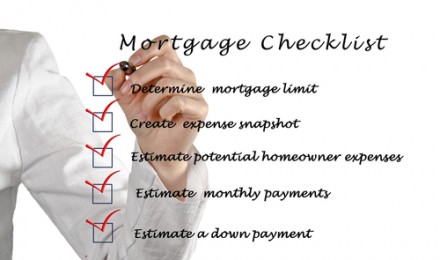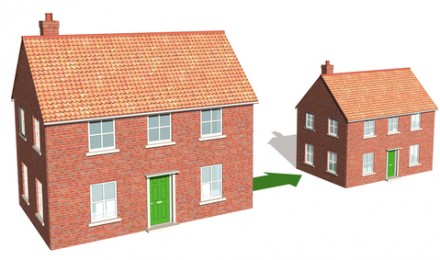In basic terms, a conforming mortgage is a home loan that Freddie Mac and Fannie Mae would buy due to the fact that the mortgage meets these two agencies’ dollar limits and underwriting standards. A conforming mortgage must adhere to rules set by Government-Sponsored Enterprises (GSEs) such as Fannie Mae and Freddie Mac. Generally, a conforming loan has fewer borrowing costs than non-conforming (private) mortgages. The interest rates are often several points lower than private loan rates.
Loan Limits and Regional Variation
As of 2011, the mortgage loan limit for a single-family house is set at $417,000. The loan limits are higher in the areas of Alaska, Hawaii, Guam, and the U.S. Virgin Islands – $625,500 for a single-family house. The loan limits are even higher for multi-unit homes; for example, a duplex loan limit in the contiguous states is set at $533,850. A four-unit duplex has a loan limit of $801,950, but the limit is raised to $1,202,925 in the high-cost areas mentioned earlier.
Income Limits
It is more difficult to get a conforming loan than in the past. There are simply more requirements. Your housing expenses cannot be more than 28 percent of your monthly income. In addition, your total debt obligations (mortgage, credit cards, auto loans etc.) cannot be any more than about 36-45 percent of your monthly income before taxes. Conforming loans always ask the borrower to show the last two years of income to prove that he or she has a stable income and can afford the mortgage.
Down Payments
Down payments for a non conforming mortgage are usually lower than for private loans. Freddie Mac and Fannie Mae require at least a five percent down payment for 1-4 unit homes and manufactured homes. You may qualify for a lower down payment if you can get a Home Path mortgage. If you have a higher credit score, you get a lower down payment. For example, if your credit score is over 620, you only have to pay a five percent down payment amount. If it’s lower, you may have to pay up to 10 percent. VA loans require no down payment, and USDA loans usually don’t require any down payment at all.
If your income falls below 80 percent of your Area’s Median Income (AMI), you could qualify for down payment and closing cost assistance, but it depends on where you live. You may have to take a free homebuyer’s class in your city before you can get your conforming loan or down payment assistance.
Interest Rates
Your interest rate on a conforming mortgage depends on your credit score. Higher credit scores get lower interest rates, so if you are planning to buy a home soon, work on fixing your credit score by paying down debts and clearing up incorrect data.
In basic terms, a conforming mortgage is a home loan that Freddie Mac and Fannie Mae would buy due to the fact that the mortgage meets these two agencies’ dollar limits and underwriting standards. A conforming mortgage must adhere to rules set by Government-Sponsored Enterprises (GSEs) such as Fannie Mae and Freddie Mac. Generally, a conforming loan has fewer borrowing costs than non-conforming (private) mortgages. The interest rates are often several points lower than private loan rates.
Loan Limits and Regional Variation
As of 2011, the mortgage loan limit for a single-family house is set at $417,000. The loan limits are higher in the areas of Alaska, Hawaii, Guam, and the U.S. Virgin Islands – $625,500 for a single-family house. The loan limits are even higher for multi-unit homes; for example, a duplex loan limit in the contiguous states is set at $533,850. A four-unit duplex has a loan limit of $801,950, but the limit is raised to $1,202,925 in the high-cost areas mentioned earlier.
Income Limits
It is more difficult to get a conforming loan than in the past. There are simply more requirements. Your housing expenses cannot be more than 28 percent of your monthly income. In addition, your total debt obligations (mortgage, credit cards, auto loans etc.) cannot be any more than about 36-45 percent of your monthly income before taxes. Conforming loans always ask the borrower to show the last two years of income to prove that he or she has a stable income and can afford the mortgage.
Down Payments
Down payments for a non conforming mortgage are usually lower than for private loans. Freddie Mac and Fannie Mae require at least a five percent down payment for 1-4 unit homes and manufactured homes. You may qualify for a lower down payment if you can get a Home Path mortgage. If you have a higher credit score, you get a lower down payment. For example, if your credit score is over 620, you only have to pay a five percent down payment amount. If it’s lower, you may have to pay up to 10 percent. VA loans require no down payment, and USDA loans usually don’t require any down payment at all.
If your income falls below 80 percent of your Area’s Median Income (AMI), you could qualify for down payment and closing cost assistance, but it depends on where you live. You may have to take a free homebuyer’s class in your city before you can get your conforming loan or down payment assistance.
Interest Rates
Your interest rate on a conforming mortgage depends on your credit score. Higher credit scores get lower interest rates, so if you are planning to buy a home soon, work on fixing your credit score by paying down debts and clearing up incorrect data.






